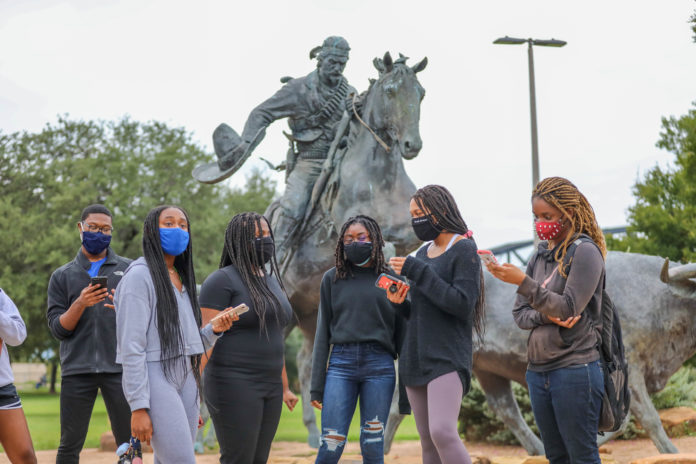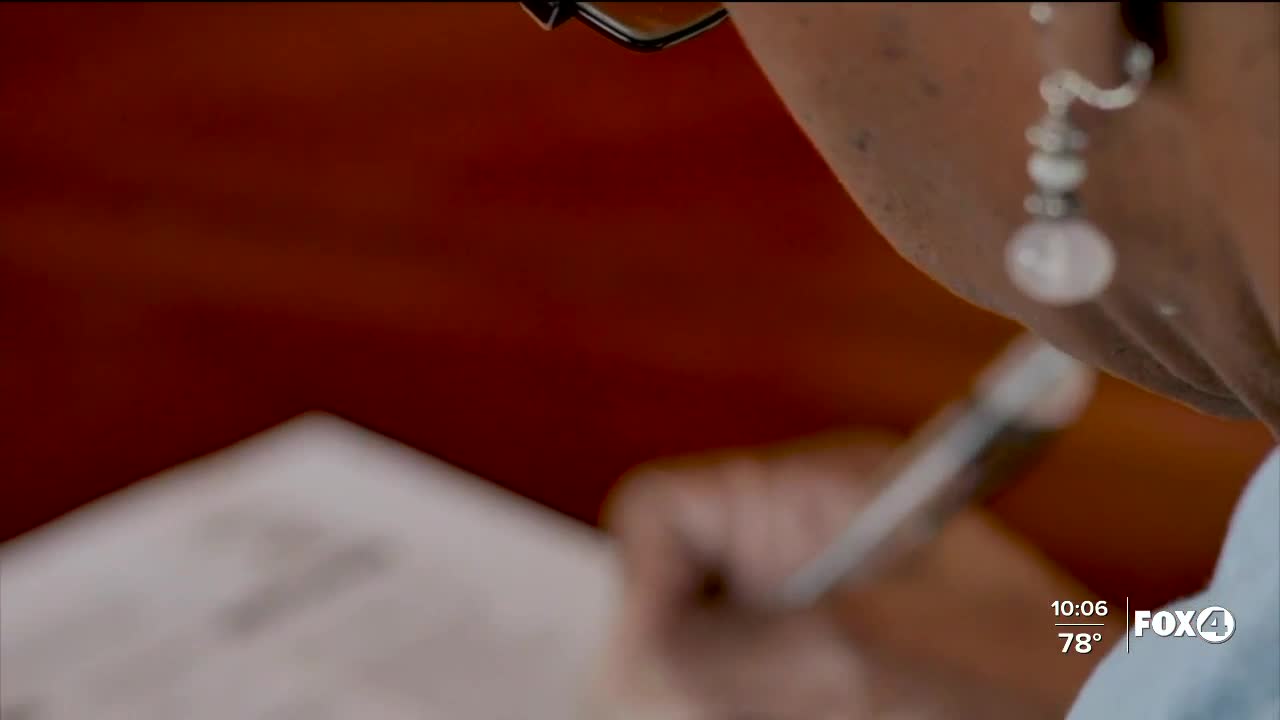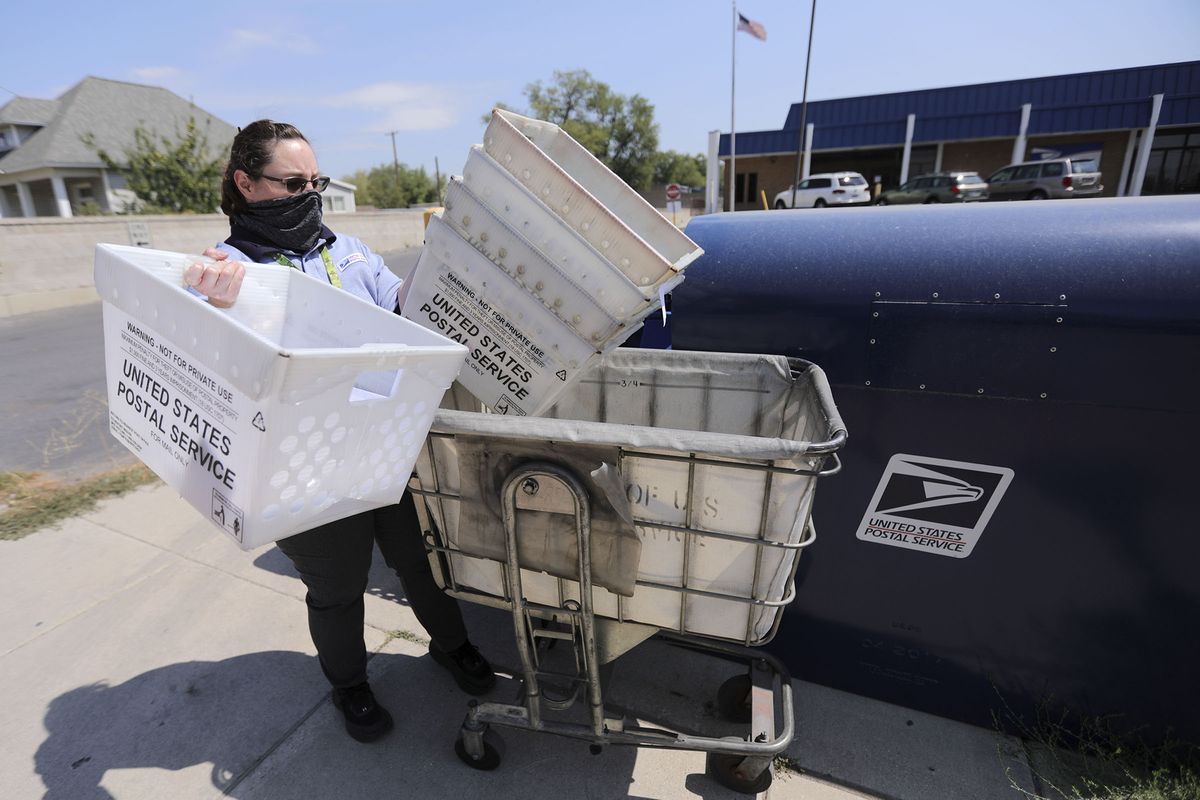
By Meredith Pratt | Staff Writer
The Black Lives Matter movement and police reform became major talking points for the 2020 election after protests erupted across the nation in response to the deaths of George Floyd, Breonna Taylor, Ahmaud Arbery and more Black Americans.
Both President Donald Trump and Democratic candidate and former Vice President Joe Biden have made efforts to appeal to Black voters, but the candidates have taken different stances on the BLM movement.
The president recently held a “Black Voices for Trump” rally in Atlanta on Sept. 25 where he promised to make Juneteenth a national holiday, designate the Ku Klux Klan and Antifa as terrorist organizations and introduce a national clemency program if reelected.
“The plan unveiled Friday included a long list of promises, with few details on how they would be paid for or fulfilled,” AP reported.
Trump also denounced the Black Lives Matter movement, citing instances of violence at BLM protests.
“Our hearts break for their families and for all families who have lost a loved one … But we can never allow mob rule,” Trump said. “This is an unusual name for an organization whose ideology and tactics are right now destroying many Black lives.”
At the Democratic National Convention in August, Biden showed support for the movement and invited George Floyd’s brothers to speak. However, the Democratic candidate was criticized by some BLM activists for not committing to certain actions, such as defunding the police.
Proponents of this initiative advocate for the allocation of money towards the community itself, rather than toward police departments.
Biden later made his position clear about defunding police at the first presidential debate on Sept. 30.
“I’m totally opposed to defunding the police officers,” Biden said. “They need more assistance.”
Still, Biden has stated that in first 100 days he would “deal with institutional racism” and create a police oversight body.
His campaign led virtual voter registration events in swing states on National Black Voter Day to specifically target the Black demographic.
Houston senior Lexy Bogney, an officer for Baylor NAACP, a social justice organization with a mission to promote equality and eliminate race-based discrimination, said the organization held a voter registration event on National Black Voter Day.
“So far, in preparation for the election we held a voter registration awareness and drive event for National Black Voter Day on September 18,” Bogney said. “In the next few weeks we’ll be publicizing early voting dates and polling information.”
Bogney said she sees the BLM movement impacting the 2020 presidential election on a large scale.
“I think the Black Lives Matter movement is something that has always impacted the ways in which we vote, as it’s been an official organization for the past few years, but I think in this election more than ever people are looking for leaders and representatives that are not only supportive of the movement, but also condemn hate,” Bogney said. “In my personal experience, the only difference I have seen is that more people in our generation are ready to step up and make a change as we’re finally allowed to have our voices heard in this election.”
Bogney said she thinks the momentum from the BLM movement has also bled into local politics.
“I think the number of protests and some of the consistency we’ve seen with these protests across all 50 states has really inspired people to make sure their voices are not only heard in this election, but also smaller and local elections that are just as, if not almost more important,” Bogney said.
Colorado Springs, Colo., freshman Whitney McCoy said that the BLM movement will “weigh heavily” on her decision surrounding the presidential election.
“At first, the movement opened my eyes to racism better and how we can fight it, but then seeing Donald Trump do nothing to help the Black Lives Matter movement further — my willingness to learn about the movement and support it grew,” McCoy said.
McCoy said that she felt encouraged to vote after discussing the election in one of her classes.
“In my social justice class, we discussed how important it is for us to get out and vote this year,” McCoy said. “My professor talked about how tense of a situation this year’s election is going to be, and how regardless of what we believe or who we are going to vote for, we need to just get out there.”


